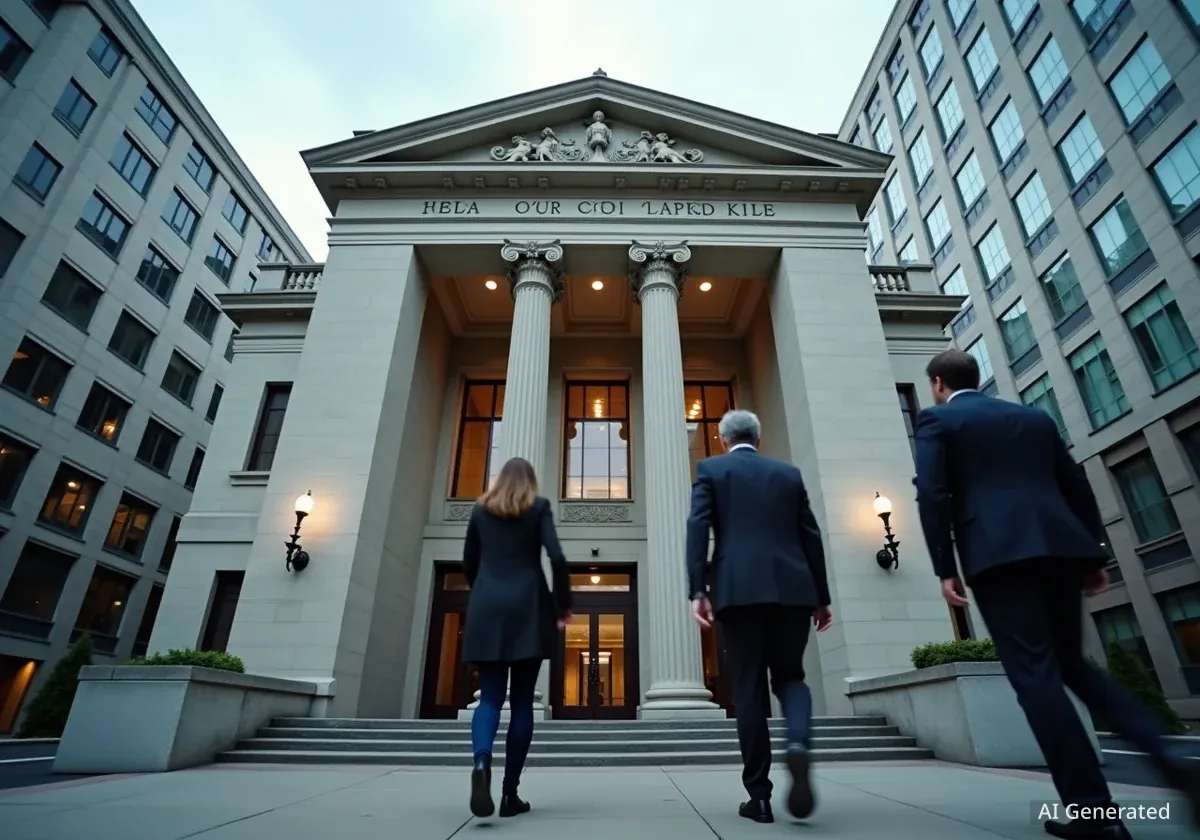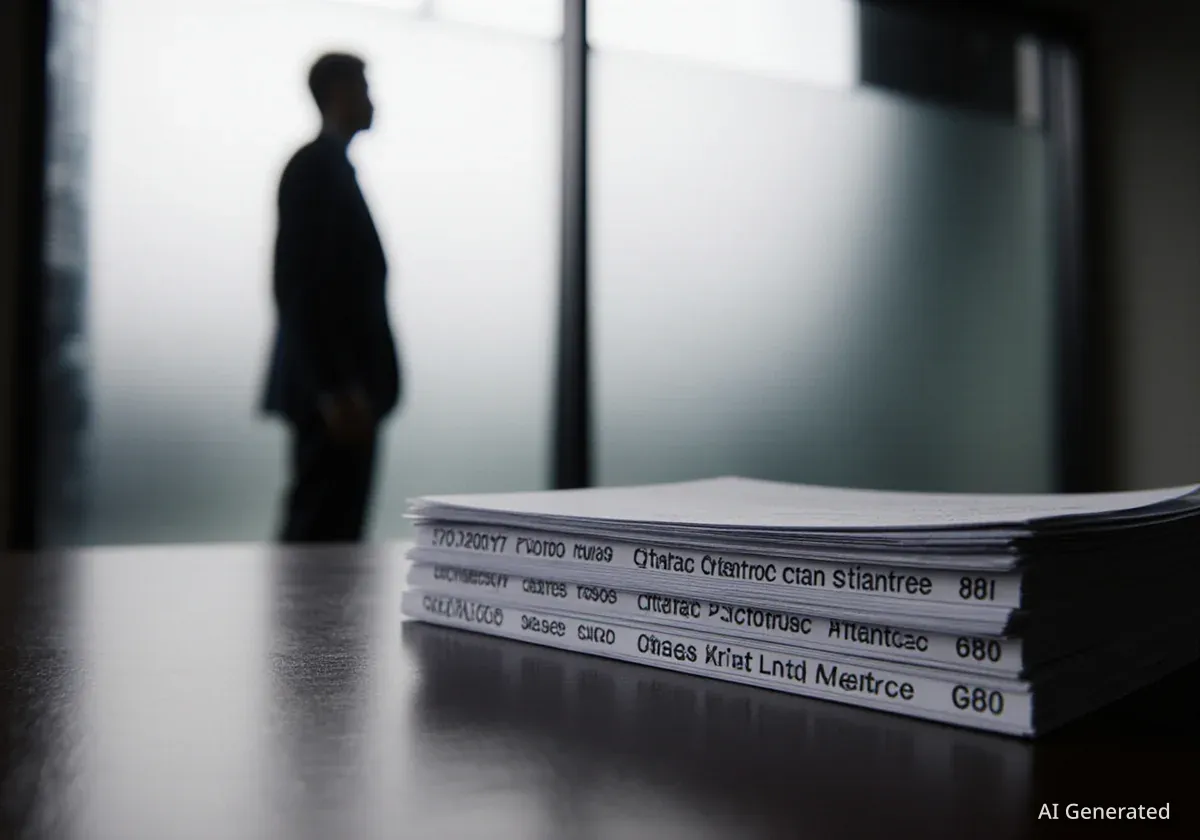Lyndon Wiggins will face a retrial for first-degree murder in Hennepin County, Minnesota. This follows a state Supreme Court decision to overturn his previous conviction. The case involves the 2019 kidnapping and murder of real estate agent Monique Baugh.
The legal proceedings have been complex, spanning nearly six years and involving multiple defendants. This new trial marks a significant development in a case that has drawn considerable public attention.
Key Takeaways
- Lyndon Wiggins is undergoing a retrial for first-degree murder.
- His initial conviction was overturned due to faulty jury instructions.
- The case centers on the 2019 kidnapping and murder of Monique Baugh.
- The retrial includes a large witness list and has faced pretrial legal challenges.
- Co-defendants Cedric Berry and Berry Davis remain imprisoned.
Background of the 2019 Crime
Monique Baugh, a 28-year-old real estate agent, was killed on New Year's Eve in 2019. She was a mother to two young daughters, aged two and four at the time of her death. The crime began when Baugh was lured to a fake real estate showing.
Investigators state the kidnappers sought Baugh's boyfriend, Jon Mitchell-Momoh, who was also the father of her children. The motive for the crime was allegedly a dispute over a record label contract between Wiggins and Mitchell-Momoh.
After her abduction, Baugh was held in a U-Haul truck for several hours. During this time, she was reportedly questioned for Mitchell-Momoh's address. The perpetrators then located Mitchell-Momoh and shot him three times at his home, while his children were inside. He survived the attack.
Baugh was later found dead in a north Minneapolis alley. Her hands were bound with duct tape, and she had been shot three times. Police reports indicated she had scratches, bruises, and a chipped tooth, with her acrylic fingernails torn off.
Key Facts from the Original Case
- Victim: Monique Baugh, 28.
- Date of Crime: New Year's Eve, 2019.
- Motive: Alleged dispute over a record label contract.
- Mitchell-Momoh: Survived being shot three times.
- Baugh's Injuries: Three gunshot wounds, bound hands, scratches, bruises, chipped tooth, ripped fingernails.
Initial Convictions and Appeals
Four individuals were charged in connection with the crime: Lyndon Wiggins, Cedric Berry, Berry Davis, and Elsa Segura. All four were initially convicted of aiding and abetting first-degree murder, attempted first-degree murder, kidnapping, and first-degree murder while committing kidnapping.
Each defendant received a life sentence without the possibility of parole. Berry and Davis were tried together, identified as the shooters. Their convictions relied on jury instructions stating they "acted with the intent to kill Monique Baugh" and that the act was premeditated.
Wiggins and Segura, who were romantically involved, were tried separately. Their cases featured different jury instructions. These instructions allowed for conviction if the jury found that Wiggins, Segura, "or another (or others) caused the death of Monique Baugh."
"The court said there was overwhelming evidence that Berry and Davis kidnapped and murdered Baugh but the jury was allowed to convict Wiggins and Segura without proving they were directly liable for aiding and abetting the kidnapping and killing."
Attorneys for Wiggins and Segura objected to these hybrid instructions during their trials. They later appealed the convictions to the Minnesota Supreme Court. The Supreme Court, in separate opinions, reversed the convictions. The court ruled that these instructions misstated the law and improperly influenced the guilty verdicts.
Legal Context: Faulty Jury Instructions
Jury instructions are crucial in criminal trials. They guide jurors on how to apply the law to the facts presented. If instructions are incorrect or misleading, they can lead to overturned convictions. In this case, the Minnesota Supreme Court found the instructions for Wiggins and Segura allowed for conviction without direct proof of their liability in aiding and abetting the specific acts of kidnapping and murder, which was a misstatement of the law.
Elsa Segura's Plea Deal
Last year, Elsa Segura, a former Hennepin County probation officer, entered a plea agreement. She pleaded guilty to one count of kidnapping to create great bodily harm. Segura admitted to initiating the plan that ultimately led to Baugh's death.
She specifically stated that she set up the fake real estate showing with Baugh using a burner phone. This contradicted her earlier testimony, where she claimed she did not know Baugh would be kidnapped and killed. As a result of her plea, her murder charges were dropped.
Instead of a life sentence, Segura received a 20-year prison sentence. She is currently serving her time at Shakopee and is scheduled for release in 2033. Meanwhile, Cedric Berry is serving his life sentence at Oak Park Heights, and Berry Davis is at Lino Lakes. Both Berry and Davis unsuccessfully appealed their convictions.
Ongoing Legal Challenges and Defense Allegations
The retrial for Lyndon Wiggins has been complex even before opening statements. Jury selection alone took over a week to finalize the necessary 16 jurors. The potential witness list contains more than 150 names, indicating the extensive nature of the proceedings.
Beyond the murder case itself, additional legal controversy has emerged. A search warrant filed in Hennepin County this year alleged that Wiggins’ attorney, Sarah Gad, attempted to smuggle legal paperwork soaked in cocaine and fentanyl to Wiggins while he was in jail. Gad has strongly denied these allegations.
"I would never engage in such conduct. I am at a loss for words."
— Sarah Gad, Wiggins' attorney, to the Star Tribune
Gad has claimed the investigation is based on flawed science. She also stated the warrant was leaked by the Hennepin County Sheriff’s Office as part of an “orchestrated smear campaign” against her and her client. The Sheriff’s Office has denied leaking the document, stating it was publicly available.
More than ten months after the search warrant was filed, no criminal charges have been brought against Gad in Hennepin County. Megan Larson, public information officer for the Sheriff’s Office, confirmed that the investigation into Gad remains open.
Pretrial Motions and Judicial Rulings
In the lead-up to Wiggins’ retrial, Gad filed a motion to dismiss the charges. She argued that media coverage, public statements by Hennepin County officials, and prosecutorial actions had compromised Wiggins’ ability to receive a fair trial. During a tense pretrial hearing, Gad alleged that Wiggins' attorney-client privilege was violated.
She stated that deputies at the jail seized numerous documents, including notebooks with private communications between her and Wiggins. These materials, she claimed, had not been returned. Gad argued that Wiggins could not actively participate in his defense because he was no longer allowed paper in his jail cell.
Gad also suggested that information from the seized documents could be shared with Assistant Hennepin County Attorneys Paige Starkey and Chris Filipski, who are prosecuting the case. "The searches and the case are inextricably intertwined," Gad told Judge Mark Kappelhoff, who is overseeing the trial. She described the situation as unprecedented.
Starkey and Filipski dismissed the accusation that they had received any information about an active law enforcement investigation as "ludicrous." They offered to sign affidavits confirming they had no knowledge of the search or any items recovered from Wiggins’ cell.
Judge Kappelhoff acknowledged the serious and unique nature of the situation. He ultimately ruled that the Sheriff’s Office must return seized materials related to Wiggins’ retrial. However, he denied the motion to dismiss the case due to pretrial publicity.
Following this hearing, Gad filed a motion to have Judge Kappelhoff replaced. That motion was reviewed and denied by Hilary Caligiuri, the presiding judge for the Fourth Judicial District’s Criminal Division. Opening statements in the retrial are expected to begin early this week.





